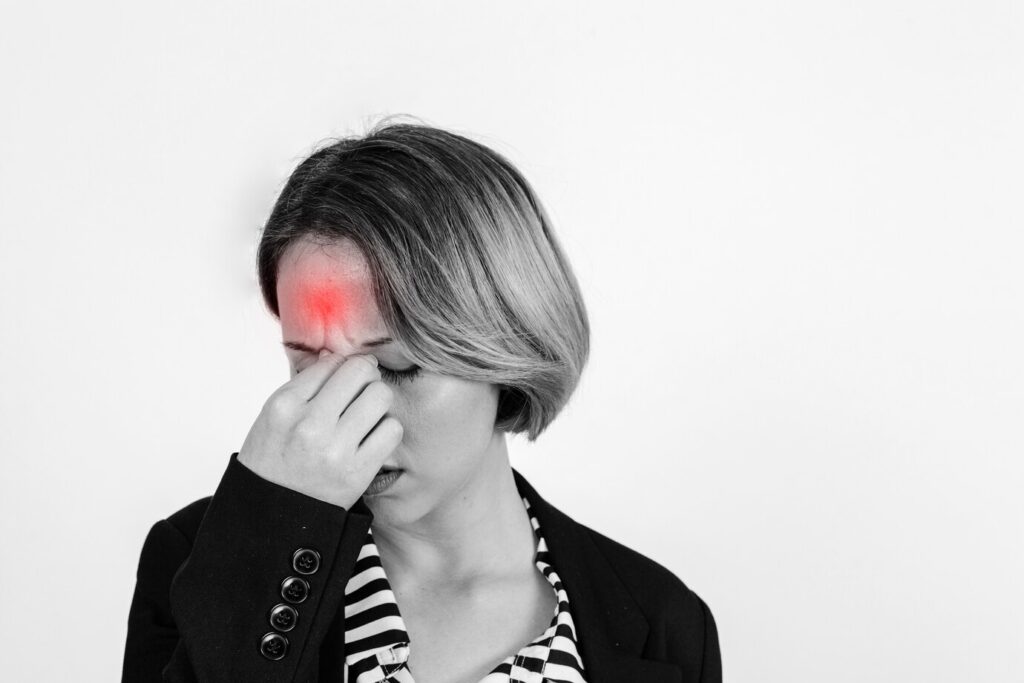Table of contents
- Understanding Headaches vs. Migraines
- What Is CBD and How Does It Work?
- What the Research Says About CBD for Headaches and Migraines
- How CBD Helps with Headaches and Migraines
- How to Use CBD for Headaches and Migraines
- FAQs About CBD for Headaches and Migraines
- Final Thoughts: Is CBD a Solution for Headache and Migraine Relief?
Headaches and migraines are more than just a nuisance — for many, they’re a debilitating part of everyday life. Whether it’s tension headaches from stress or recurring migraines that come with nausea and sensitivity to light, these conditions can drastically reduce quality of life.
With the growing interest in natural remedies, CBD for headaches and migraines has gained attention as a promising alternative to traditional painkillers. But how effective is it really? And what does current research say?
Let’s dive into the science, explore how CBD works, and see whether it could be the headache relief you’ve been searching for.
Understanding Headaches vs. Migraines

Before discussing treatment, it’s essential to understand the difference between headaches and migraines:
- Headaches are typically caused by tension, stress, dehydration, or sinus pressure. They tend to cause dull or throbbing pain in the head or neck.
- Migraines, on the other hand, are more intense and often accompanied by symptoms like nausea, vomiting, light sensitivity, and visual disturbances (auras).
Migraines are considered a neurological condition and may be triggered by hormonal changes, food, sleep disruption, or environmental factors.
Traditional treatment often involves NSAIDs, triptans, or preventive medications, but many people experience side effects or find them ineffective over time. That’s why the potential of CBD for headaches and migraines is generating so much interest.
What Is CBD and How Does It Work?
CBD (cannabidiol) is a non-psychoactive compound found in hemp and cannabis plants. It works by interacting with the endocannabinoid system (ECS), which plays a key role in regulating pain, mood, inflammation, and neurological function.
CBD is believed to:
- Reduce inflammation by suppressing cytokine production
- Modulate pain signals via vanilloid and serotonin receptors
- Relax muscle tension often associated with tension headaches
- Balance serotonin levels, which are linked to migraine onset
These interactions make CBD for headaches and migraines a potentially powerful ally in preventing and managing symptoms.
What the Research Says About CBD for Headaches and Migraines

While more clinical research is needed, early studies and anecdotal evidence suggest CBD may be effective in reducing headache and migraine frequency, intensity, and associated symptoms.
📚 Key Studies and Findings:
- A 2017 review published in Cannabis and Cannabinoid Research suggested that cannabinoids could help reduce acute and chronic pain, including migraines.
- A 2016 study in Pharmacotherapy found that medical marijuana use reduced migraine frequency in patients from 10.4 to 4.6 migraines per month.
- While this study focused on THC and CBD together, researchers noted that CBD alone may offer anti-inflammatory and analgesic effects that contribute to this benefit.
Although most studies combine CBD with THC, isolated CBD still shows promise for its ability to regulate pain perception and inflammation — two key factors in migraine development.
How CBD Helps with Headaches and Migraines
Here’s how CBD may support people suffering from headaches or migraines:
1. Pain Relief
CBD interacts with receptors in the central nervous system that modulate pain signals. This can help reduce both the intensity and duration of headache pain.
2. Anti-Inflammatory Action
Since many migraines stem from inflammation of blood vessels in the brain, CBD’s anti-inflammatory properties can reduce pressure and swelling.
3. Reduced Anxiety and Stress
Stress is a common trigger for both tension headaches and migraines. CBD has calming effects that may help prevent stress-induced flare-ups.
4. Improved Sleep
Poor sleep can lead to chronic headaches. CBD helps improve sleep quality, supporting better neurological health overall.
5. Muscle Relaxation
Tension in the neck and shoulders can lead to headaches. CBD may help relax muscles and ease tightness that contributes to pain.
How to Use CBD for Headaches and Migraines
The most effective way to use CBD for headaches and migraines depends on your individual needs and the severity of symptoms. Here are some recommended methods:
✅ CBD Oil/Tinctures
- Fast absorption under the tongue
- Ideal for quick migraine relief
✅ CBD Capsules
- Convenient and consistent dosing
- Great for daily migraine prevention
✅ CBD Edibles
- Slower onset but longer-lasting effects
- Suitable for ongoing symptom management
✅ CBD Vapes
- Fastest delivery method
- Can be useful at the onset of a migraine (use with caution if sensitive to inhalation)
✅ Topical CBD
- Apply to temples, neck, or shoulders
- Useful for tension headaches caused by muscle tightness
Tip: Always start with a low dose (10–25mg) and increase gradually. Consult a healthcare provider, especially if you’re on other medications.
FAQs About CBD for Headaches and Migraines
CBD may reduce the intensity and duration of a migraine if taken early, especially in tincture or vape form. Results vary depending on the individual.
Yes, CBD is generally safe for long-term use. It’s non-addictive and has minimal side effects when taken appropriately.
Some users report fewer migraines with daily CBD use. While not guaranteed, CBD may help by reducing inflammation, balancing serotonin, and improving sleep.
Start with a low dose (10–25mg) and adjust based on your body’s response. Some people need up to 50mg or more for severe symptoms.
Hemp-derived CBD (with less than 0.3% THC) is federally legal in the U.S. and does not produce a high. Always choose products from trusted brands with lab testing.
Final Thoughts: Is CBD a Solution for Headache and Migraine Relief?
If you suffer from frequent headaches or migraines and are looking for a natural, low-risk remedy, CBD for headaches and migraines may be worth exploring. With growing scientific support and many personal success stories, CBD is becoming a go-to for those seeking non-pharmaceutical solutions.
Remember: consistency is key, quality matters, and it’s always best to work with a healthcare provider to personalize your approach. With the right dosage and product, CBD could be the natural relief you’ve been hoping for.





